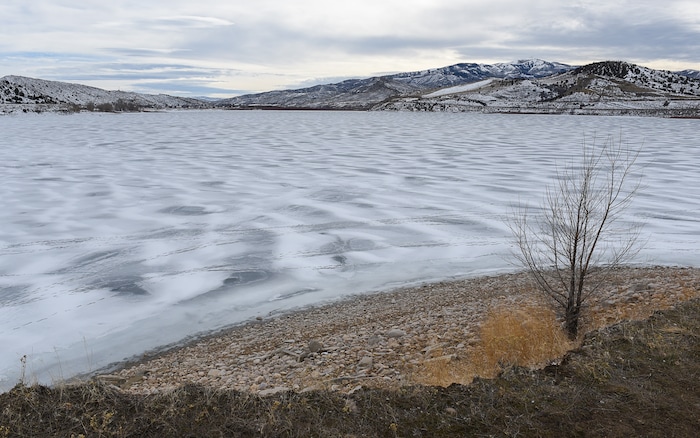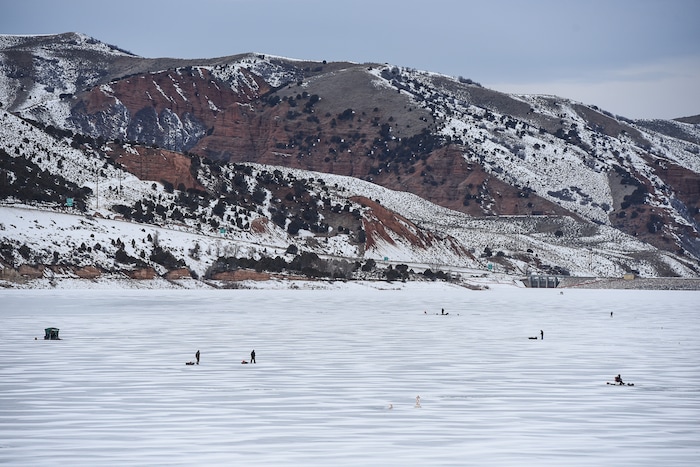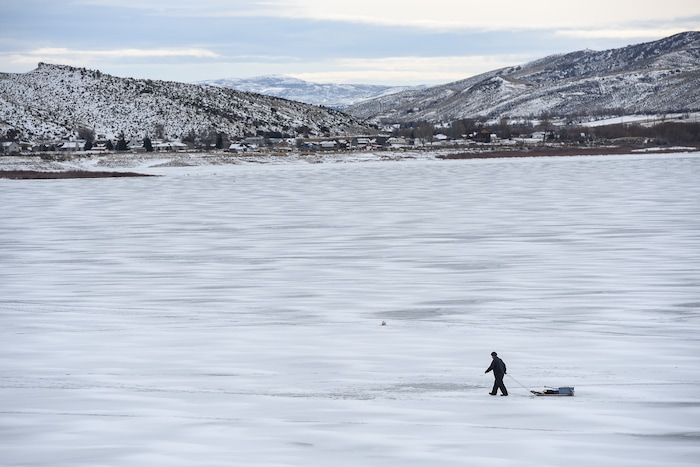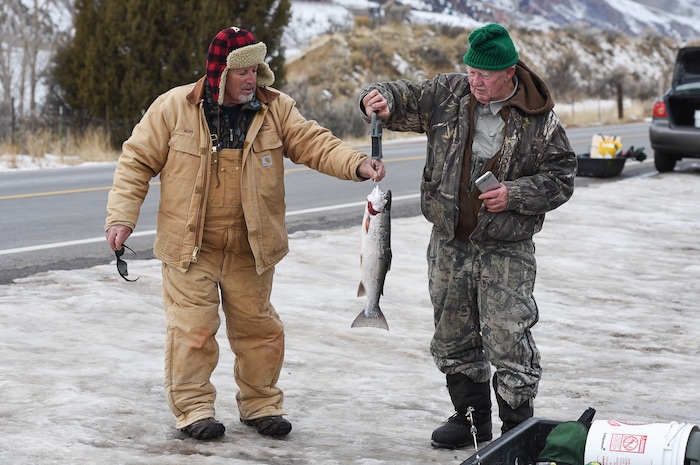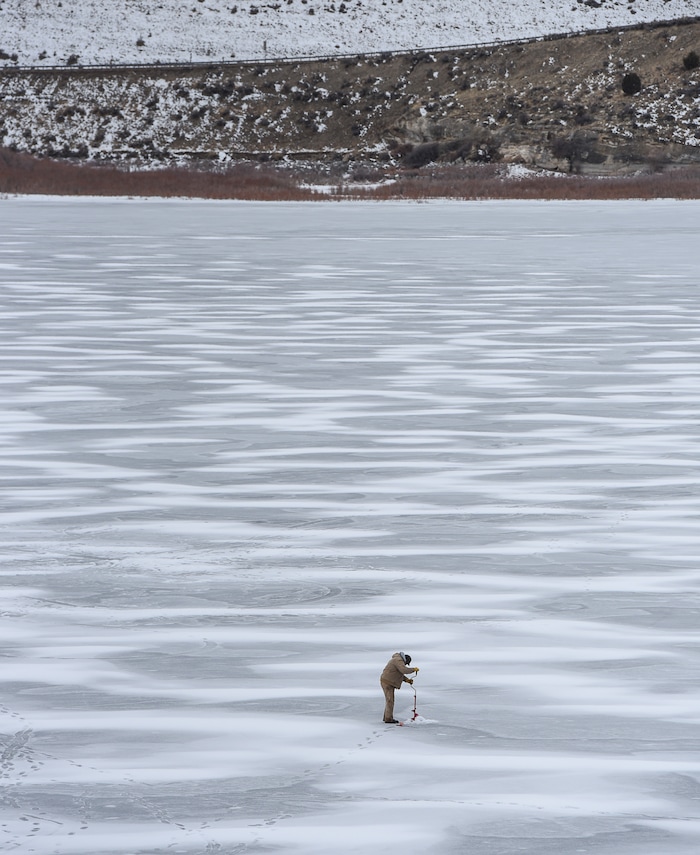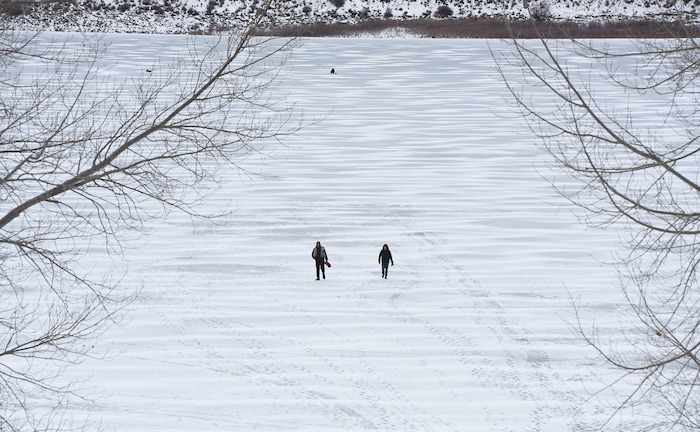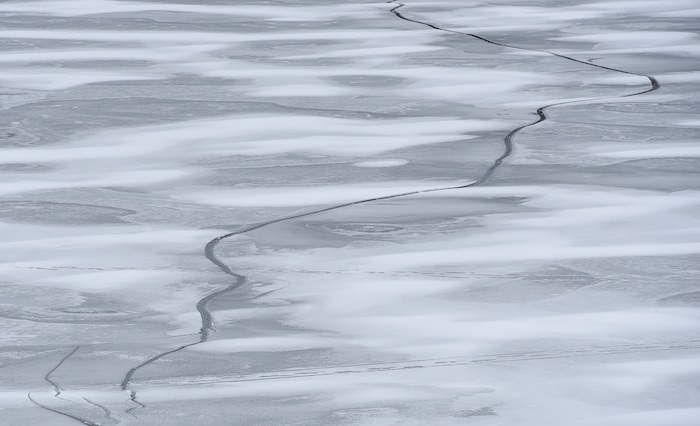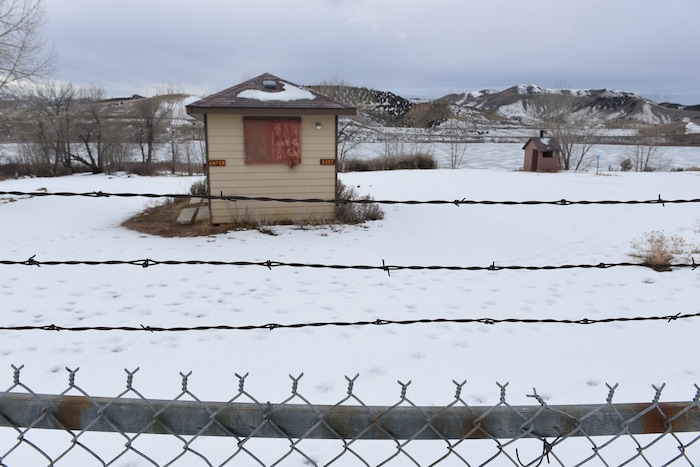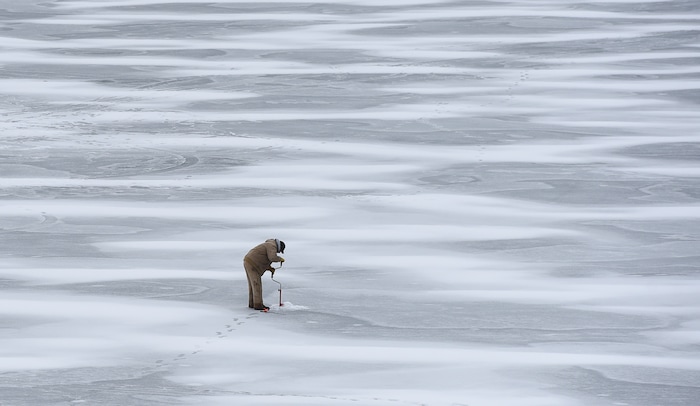Echo Reservoir is joining Utah’s family of state parks, the first added to the 43-park system in more than a decade.
The former Echo Resort closed last fall when its long-time proprietor Joye Ray sold out the remainder of her concession contract to the U.S. Bureau of Reclamation, which built and owns Echo Dam, site of a 1,400-acre lake on the Weber River outside Coalville.
The bureau asked the Utah Division of State Parks to take over that contract, and state officials eagerly embraced it as a way to meet burgeoning demand for water-based recreation near the Wasatch Front.
“We’re anticipating there will be a lot of overflow from Rockport and Jordanelle [state parks],” said State Parks planner Jason Allen. “Jordanelle sells out every weekend.”
Already popular for fishing, boating, sailing, swimming and water skiing, the recreation site two miles north of Coalville on Echo Dam Road includes a marina and campground tucked in a wooded enclave
The Division of State Parks will develop a plan for Echo State Park over the next few months and anticipates investing $2 million in upgrading the marina, boat ramp and other facilities. It would be the first park added to the state-managed system since 2003, with the addition of Sand Hollow Reservoir in Washington County.
Noting Echo Reservoir’s already strong visitation numbers, Allen said, “we will build on what was already up there.” Echo will open for day use this spring, he said, but its amenities will not be fully operational.
The Bureau of Reclamation has agreed to match whatever the state spends upgrading Echo’s recreational facilities. State Parks director Fred Hayes is expected to ask Utah lawmakers for the money soon, as part of a $10 million appropriation and a recently adopted strategic plan to build up the state park system.
After years of surviving on heavy state subsidies, the park system has flourished in recent years by investing in the kinds of services and amenities visitors are willing to pay for, such as yurts, ziplines, mountain bike trails, gear rentals, boat ramps and marinas. Most Utah parks now operate in the black and visitation across the system soared to 5.7 million last year.
At the request of lawmakers, state parks officials have explored establishing new state parks on federal land at Little Sahara Sand Dunes, popular with dune buggies riders, and at Hole in the Rock, the historic site east of Escalante. State Parks is also probing major expansions at Goblin Valley and Goosenecks, in partnership with the federal Bureau of Land Management.
State officials dismissed Little Sahara as a potential state park after determining admission fees would not cover high costs of managing motorized recreation at the site, but Hole in the Rock remains a candidate for park status.
Echo fell into State Parks’ lap last fall when the concessionaire called it quits. A retired Coalville teacher, Ray, 86, started the resort in the 1960s with colleagues and built it up over the years.
Echo State Park is now the 12th the state operates on waters impounded by Bureau of Reclamation dams. Others include Deer Creek, Red Fleet, Steinaker and Starvation.
Echo’s earthen dam was completed in 1931 and is now operated by the Weber River Water Users Association, which provides secondary water to the Wasatch Front. The U.S. Bureau of Reclamation completed a $50 million seismic upgrade on 1,887-foot-long dam four years ago.
The resort is also located close to the end of a 28-mile path following the Historic Union Pacific Rail Trail between Park City and Coalville.
“This is going to be a unique opportunity for recreation,” said Wayne Pullan, Utah area manager for the Bureau of Reclamation. “We don’t have a recreational facility so close to a town. That trail and the town close by and new recreational amenities, those resources will complement each other in ways that we won’t anticipate.”
